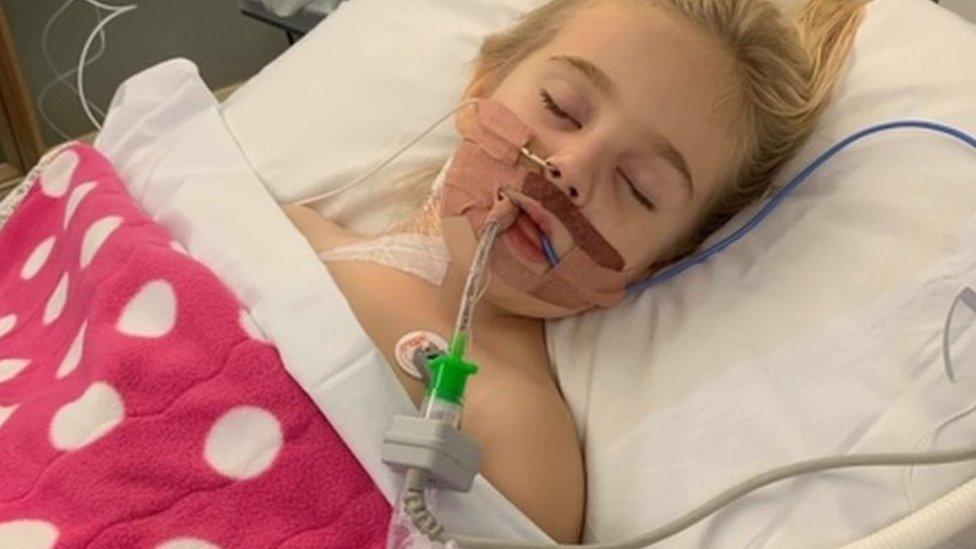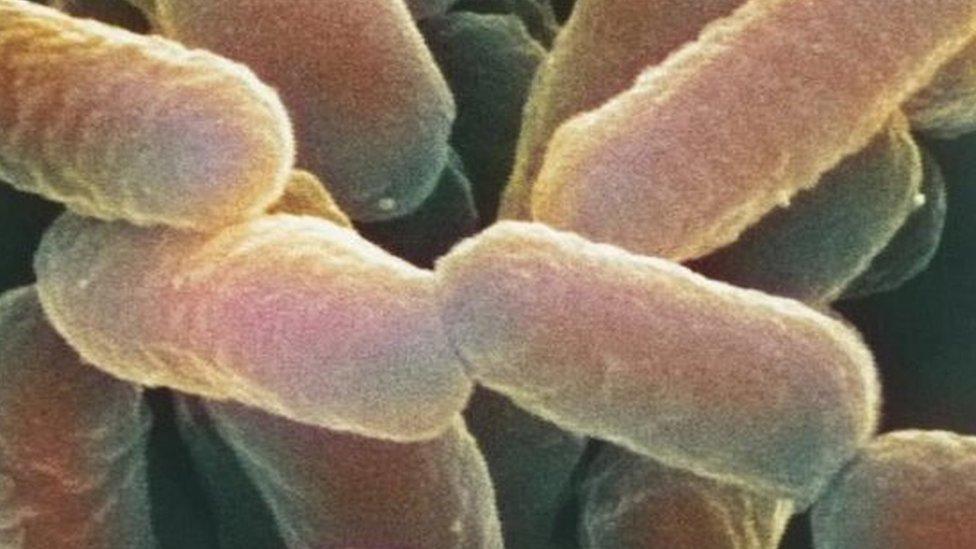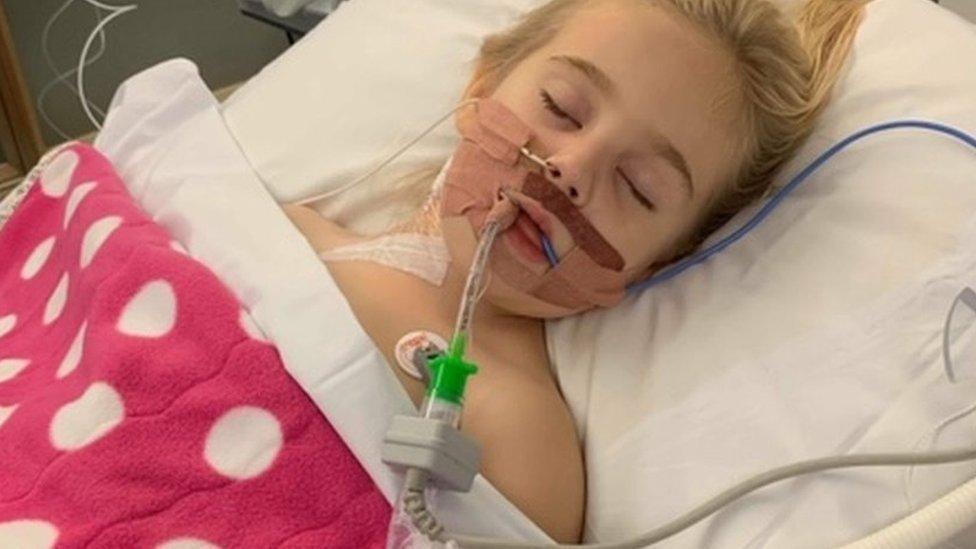Further cluster of E. coli O157 cases on Isle of Wight
- Published

Isla Asprey spent more than two weeks in intensive care after contracting E.coli O157
A total of 10 cases of E. coli have been confirmed by Public Health England (PHE) on the Isle of Wight.
PHE said four instances had been reported of children getting the bug after trips to the island in early October.
Six other cases of the infection have been confirmed among island residents or visitors since September.
Results are also awaited on a number of unconfirmed cases. The source of the infection is still unknown, PHE said.
It has been identified as the E. coli 0157 strain, external. PHE is urging people to be vigilant with hand hygiene.
Kidney failure
Four-year-old Isla Asprey, from Botley, is one of those who contracted the potentially fatal O157 strain.
She became unwell days after a break to the Isle of Wight in September and spent 17 days in intensive care after she was diagnosed with kidney failure.
PHE said it now believed Isla became infected as a result of something she ate.
Dr Anand Fernandes, a consultant for PHE, said: "We're working with environmental health officers from Isle of Wight Council to liaise with those who have been unwell in order to help us identify the source of infection and prevent further spread of the infection."
E.coli O157 can be contracted through food or water that has become contaminated by faeces from infected animals.
It can also be picked up from contact with affected animals or from exposure to an environment contaminated with animal faeces, such as farms.
The bug can also spread easily from person to person.

Avoiding E. coli infection

Wash hands thoroughly after using the toilet, before and after handling food, and after handling animals
Remove any loose soil before storing vegetables and salads
Wash all vegetables and fruits that will be eaten raw
Store and prepare raw meat and unwashed vegetables away from ready-to-eat foods
Do not prepare raw vegetables with utensils that have also been used for raw meat
Thoroughly cook all minced meat products, such as burgers and meatballs
People who have been ill should not prepare food for others for at least 48 hours after they have recovered
Source: Public Health England, external
- Published15 October 2019
